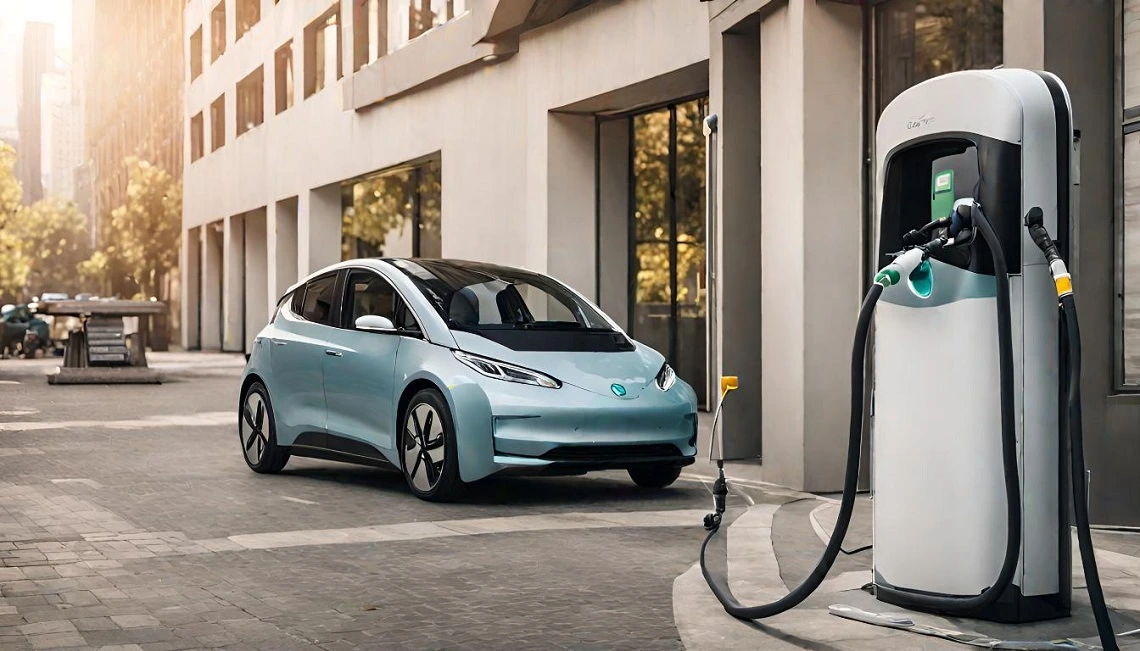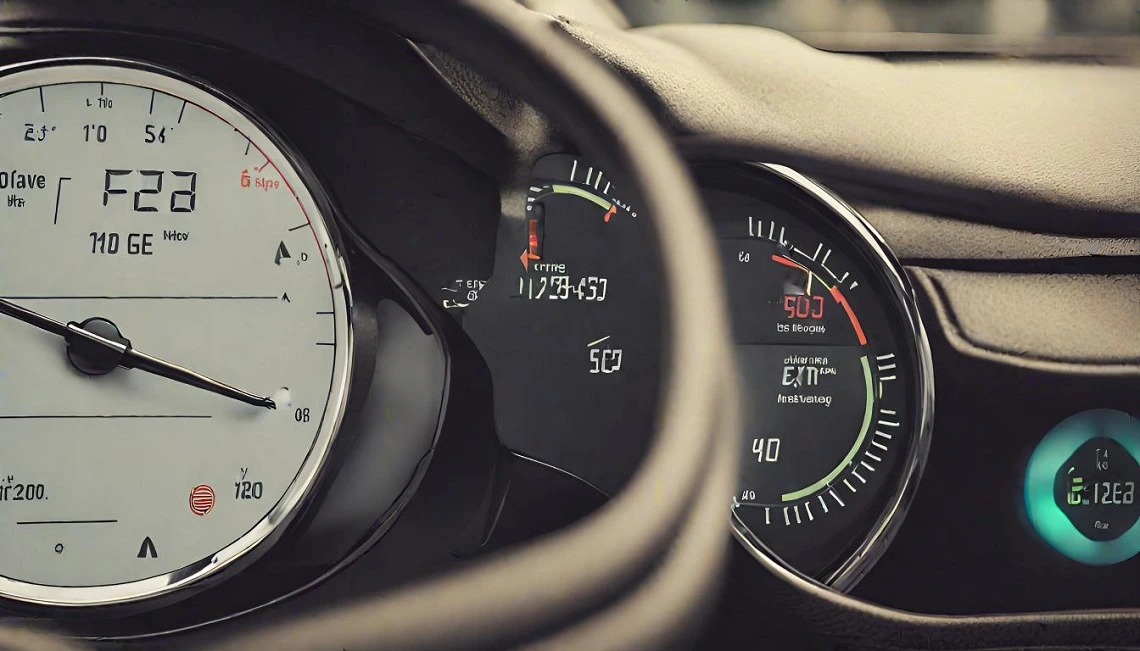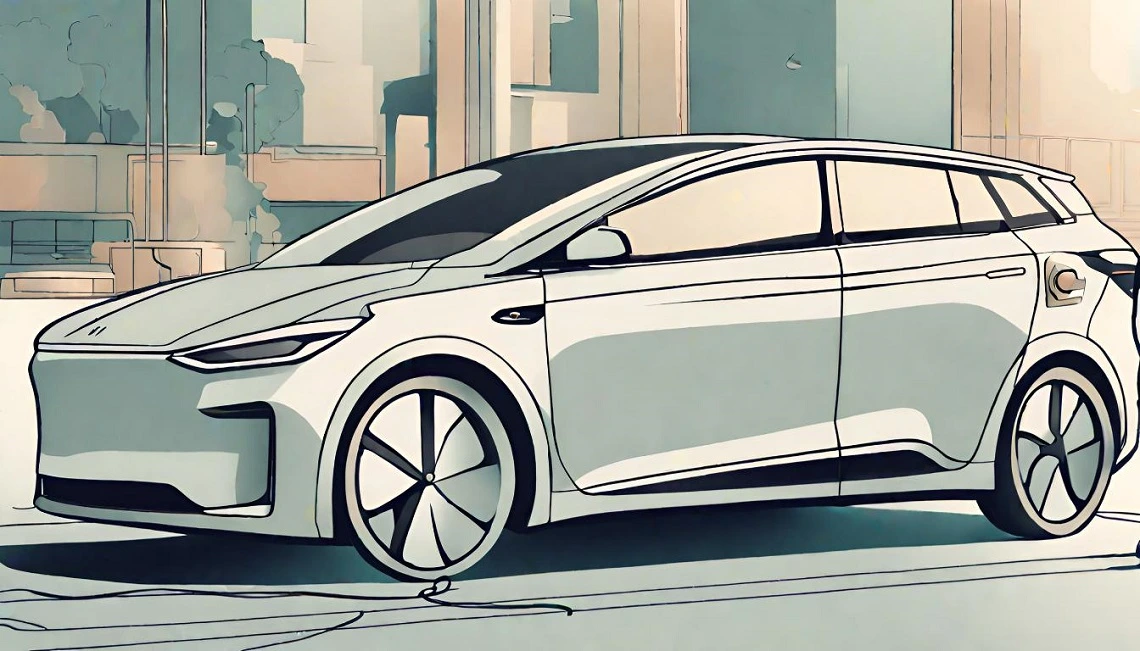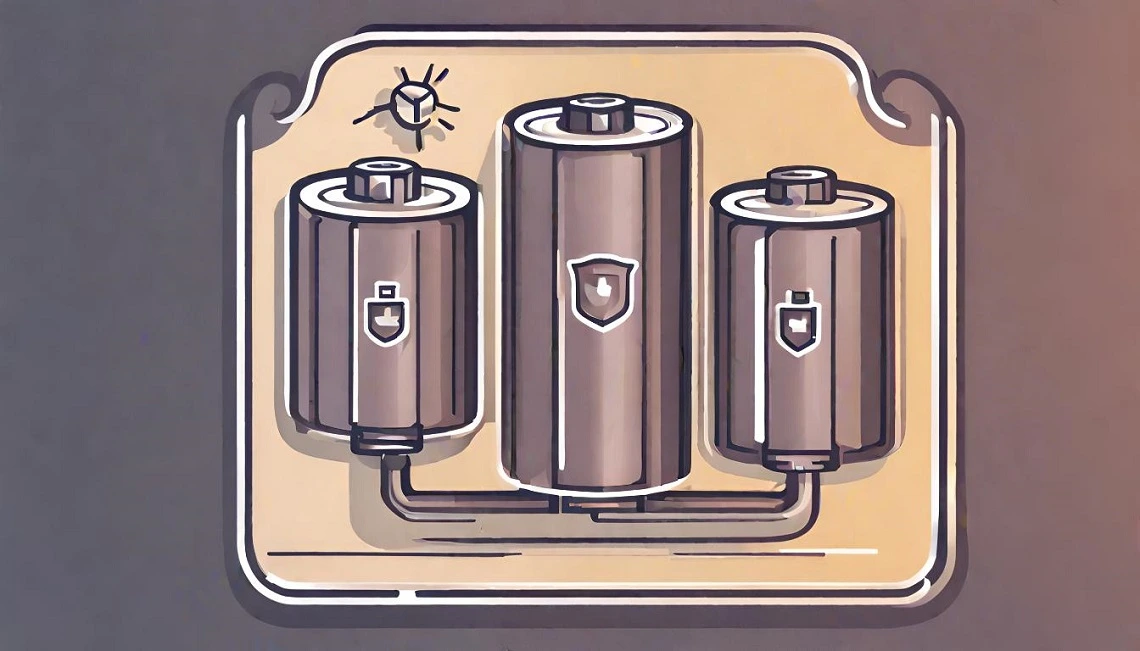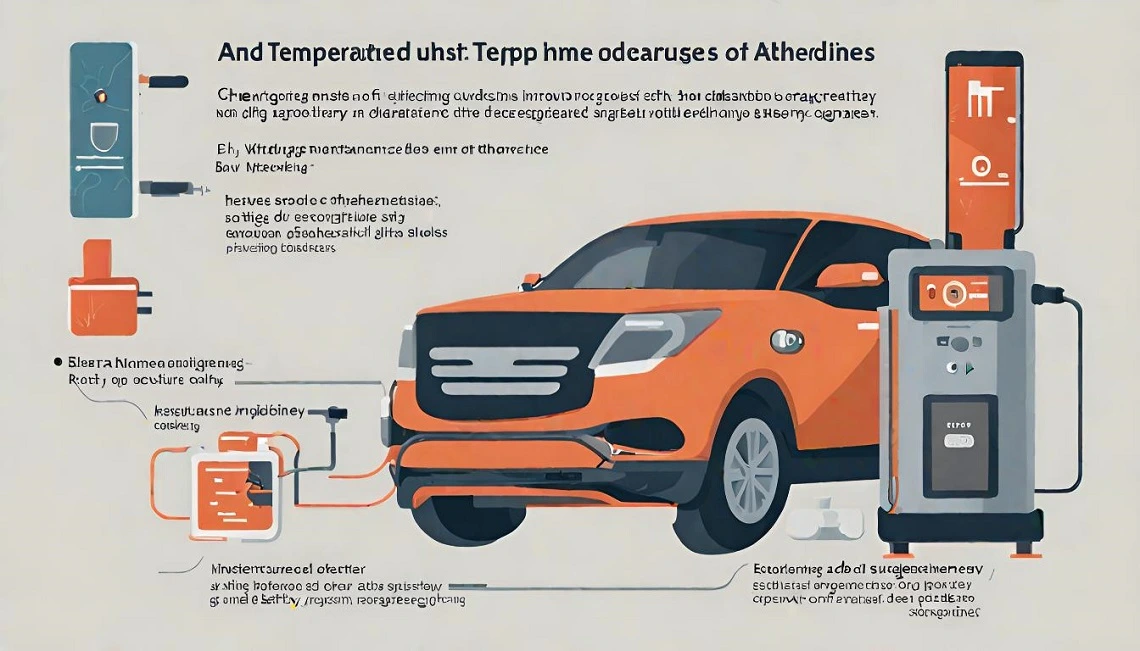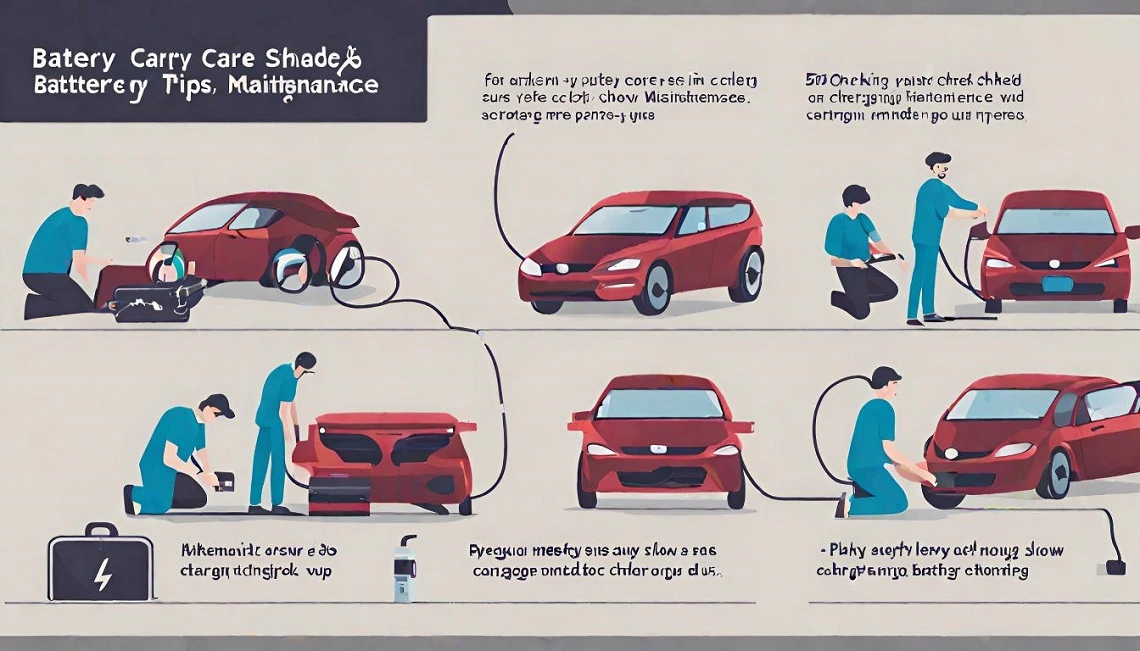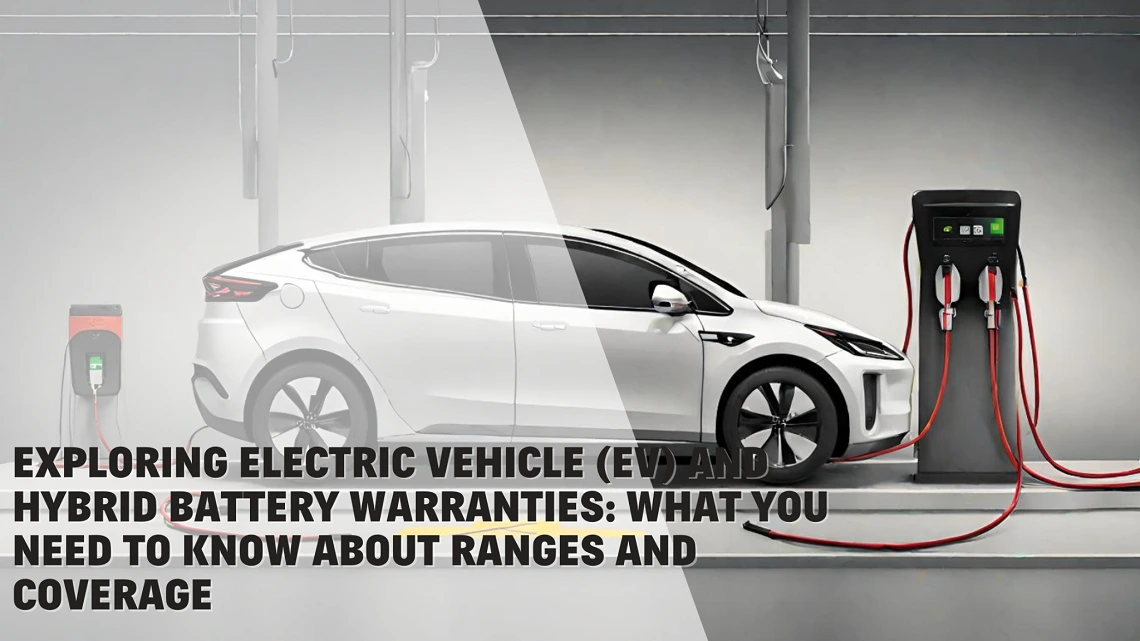
The world is undergoing a remarkable transformation towards sustainable mobility, and electric vehicles (EVs) are at the forefront of this revolution. With their advanced technology and eco-friendly features, EVs and hybrid cars are paving the way towards a greener future. These vehicles not only reduce our carbon footprint but also offer numerous benefits to both individuals and the environment. One of the key advantages of EVs is their contribution to reducing air pollution. Unlike traditional gasoline-powered vehicles, EVs produce zero tailpipe emissions, ensuring cleaner air for everyone. This not only improves the quality of life for individuals but also helps combat climate change by curbing greenhouse gas emissions.What’smore, some EVs are eligible for HOV/Carpool privileges in California.
The Importance of Battery Warranties for EVs and Hybrids
When it comes to purchasing a vehicle, one of the most important factors to consider is the warranty that comes with it. This is particularly true for electric vehicles (EVs) and hybrids, where the battery plays a crucial role in their performance and longevity. Fortunately, many manufacturers now offer comprehensive battery warranties that provide peace of mind to drivers. Some manufacturers provide a separate warranty that covers the battery beyond the standard new car warranty, which means the battery warranty can outlast the original bumper-to-bumper warranty. This is like powertrain or emissions system warranties. An EV or hybrid battery warranty ensures that you are protected against any defects or malfunctions in the battery system. It gives you the assurance that if anything goes wrong with your battery within the specified warranty period.
What sets these warranties apart from traditional vehicle warranties is their focus on battery-specific issues. Manufacturers understand that the performance and range of an EV or hybrid heavily rely on the health of its battery. Hence, they design these warranties to specifically address any concerns related to battery degradation or failure. One key aspect often covered by such warranties is “battery range assurance.” This means that if your EV’s or hybrid’s battery loses a significant amount of its original capacity within a certain timeframe, the manufacturer will take steps to restore it or provide compensation accordingly. This ensures that you can continue enjoying optimum driving range and efficiency throughout the life of your vehicle.
Moreover, these warranties are designed to cater specifically to EVs and hybrids, taking into account their unique technological requirements. As such, they often come with longer coverage periods compared to traditional vehicle warranties. This reflects manufacturers’ confidence in their battery systems and their commitment towards customer satisfaction.
Introducing the latest breakthrough in electric vehicle technology: Range estimation technology
Say goodbye to range anxiety and hello to worry-free driving?Current marketing efforts, brand advertising and some sales tactics create unrealistic expectations. With larger battery capacities and cutting-edge algorithms, this innovation is revolutionizing the way we use electric vehicles. Are the days of constantly checking your battery level, anxiously calculating how far you can go before needing a recharge really gone??? Thanks to advancements in EV range, you can now embark on longer journeys without any worries. Imagine the freedom of exploring new destinations without constantly searching for charging stations. But what truly sets these modern electric vehicles apart is their accurate range estimation technology.
Vehicle manufactures use sophisticated algorithms that take into account factors such as driving habits, terrain, and weather conditions, you will know exactly how far you can go on a single charge. This means no more guesswork or unexpected surprises along the way. At least that’s what you’re told… The convenience doesn’t stop there – with an array of user-friendly interfaces and real-time updates available at your fingertips, planning your trips has never been easier. You’ll have all the information you need right at your disposal – from estimated arrival times to alternative charging points along your route. However, when these tools fail, often times, all the repair facility can offer you is a software update or reset…
Not only does this advanced technology provide peace of mind for drivers but it also contributes towards creating a more sustainable future. By maximizing every charge and minimizing unnecessary energy consumption, these vehicles are paving the way towards a greener transportation system. So why settle for less when you can experience worry-free driving with an electric vehicle equipped with cutting-edge range estimation technology? Embrace this exciting development and join us in shaping a cleaner and more reliable future on our roads.
A. Understanding Battery Ranges in Electric Vehicles
Are you tired of worrying about running out of battery power in your electric vehicle? With the advancements in EV range and the introduction of innovative range estimation technology, those days of range anxiety are becoming a thing of the past. Electric vehicles are now equipped with larger battery capacities, allowing for longer journeys without needing to recharge. And with the help of cutting-edge range estimation technology, you can accurately predict how far you can go on a single charge. Let’s dive deeper into this exciting development that is making electric vehicles more reliable and convenient than ever before.
B. How Battery Warranties Play a Role in Consumer Confidence
When it comes to making a purchase, buyers are often concerned about the longevity and reliability of the product they are investing in. One aspect that can provide peace of mind is warranty coverage. Knowing that a product is protected against defects and malfunctions can alleviate buyer’s worries and ensure their investment is secure.
In particular, battery replacement costs are a significant consideration for many buyers. Whether it’s a smartphone, laptop, or any other electronic device, batteries play a crucial role in its performance. However, over time, batteries tend to lose their effectiveness and may require replacement. The cost of battery replacement can sometimes be quite substantial, leaving buyers hesitant about their purchase.
Fortunately, many manufacturers now offer warranty coverage that includes battery replacements at no additional cost. This means that if the device’s battery deteriorates within the warranty period, the manufacturer will replace it free of charge. Having warranty coverage for battery replacements offers an added layer of convenience and assurance to buyers. They can enjoy uninterrupted usage without concerns about sudden breakdowns or exorbitant costs associated with replacing faulty batteries.
If your vehicle experiences range uncertainty or premature battery deterioration, then you’re wise to seek legal advice and prepare for a potential lemon law claim.
Different Types of Battery Warranties Offered by Manufacturers
When it comes to purchasing a new vehicle, one of the most important factors to consider is the warranty coverage. A standard warranty provides peace of mind and protects you from unexpected repair costs during a specified period. Extended warranties for batteries in hybrids and EVs have become increasingly common as these vehicles gain traction in the market. These warranties extend beyond the typical coverage period offered by standard warranties, providing additional protection specifically for the battery components.
Understanding the terms and conditions of battery warranties offered by different automakers is crucial to make an informed decision. Each manufacturer may have their own unique set of guidelines regarding what is covered, how long it is covered for, and any exclusions or limitations that may apply. For example, some automakers offer separate warranties for different components of the battery system such as capacity degradation or defects in material or workmanship. The duration of these warranties may vary from brand to brand, ranging anywhere from 3 years/36,000 miles, 8 years/100,000 miles up to 10 years/150,000 miles.
It’s essential to carefully review the fine print and compare warranty offerings before making your purchase decision. Some manufacturers even offer optional extended warranty packages that can provide further protection beyond what is initially provided. Having a comprehensive understanding of these terms and conditions will not only give you peace of mind but also help you plan for any potential future expenses related to your hybrid or EV’s battery system. Keep in mind extended warranties don’t always provide the same level of protection under the lemon laws. This is especially true when these are third-party warranties sold by the dealership.
A. Comparing Warranty Periods: Who Offers the Best Coverage?
When it comes to purchasing a new vehicle, peace of mind is paramount. The warranty duration plays a crucial role in ensuring that you are protected from unexpected repair costs. With the rise of EVs, automakers have recognized the need to provide comprehensive warranties specific to these advanced vehicles. When comparing warranty durations between different automakers’ EV models, it’s important to consider factors such as battery life and overall vehicle reliability. Some automakers offer impressive warranty coverage that extends beyond just basic repairs.
In terms of hybrid and EV battery warranties, there are notable differences to be aware of. Hybrid vehicles typically come with separate warranties for their batteries due to their unique design. These warranties often cover a longer duration compared to traditional gasoline-powered vehicles. EVs have dedicated battery warranties which may vary across automakers. It is essential to carefully review these warranties as they can differ in terms of coverage length and conditions. Some manufacturers offer generous coverage for both defects and gradual loss of capacity over time.
It’s worth noting that while warranty durations are important considerations when purchasing an electric or hybrid vehicle, they should not be the sole determining factor. Other factors such as reliability ratings, maintenance requirements, and charging infrastructure availability should also be taken into account.
B. Factors Influencing Battery Warranty Coverage Decisions
Electric vehicles (EVs) have become increasingly popular due to their eco-friendly nature and cost-saving benefits. However, one concern that many potential EV owners have is the longevity of the vehicle’s battery. Fortunately, advancements in technology have allowed for the development of battery degradation rate thresholds, which help maintain the lifespan of electric vehicle batteries. Battery degradation refers to the gradual loss of a battery’s capacity over time. Several factors can impact this degradation rate, including temperature, charging habits, and depth of discharge. When making or preparing for a lemon law claim, it is important to keep track of these habits to assist in the prosecution of your case. Hashemi Law Firm attorneys routinely inquire about these habits so to better develop legal theories and evidence in support of your claims.
To address these concerns and instill confidence in consumers, manufacturers often provide warranty terms that outline specific battery maintenance requirements. By adhering to these maintenance guidelines, EV owners can uphold their warranty terms and ensure their batteries remain in optimal condition for an extended period.
Regular maintenance often includes simple practices such as avoiding extreme temperatures by parking in shaded areas or utilizing climate control features when necessary. Additionally, it is recommended to charge your EV regularly rather than letting it sit with a low charge level for an extended period.
Tips for Maximizing Your Batteries’ Lifespan and Warranty Coverage
Manufacturers commonly suggest, it’s important to keep your battery cool. Extreme temperatures can negatively impact its performance and overall health. Whenever possible, park your vehicle in a shaded area or a garage during hot summer days.
Lastly, taking advantage of regenerative braking can significantly enhance energy efficiency by converting kinetic energy into electrical energy while decelerating or braking – effectively recharging your battery as you drive!By implementing these practices into your routine maintenance regime, you’ll effortlessly maximize both the performance and lifespan of your hybrid or electric vehicle’s battery.
Conclusion: Making Informed Decisions About EV and Hybrid Battery Warranties
When it comes to purchasing a new battery, considering the warranty coverage is crucial. Weighing the warranty against the price and range of the battery can help you make an informed decision. Battery technology is constantly evolving, and with advancements in this field, we can expect future batteries to offer even better performance and longer lifespans. As a result, manufacturers are also adapting their warranty offerings to keep up with these advancements. By understanding these considerations, you can ensure that your investment in a battery is protected for years to come.
If your EV or hybrid vehicle experiences battery failure, range variances, charging failures and/or inconsistencies during the original manufacturer’s warranty period, then contact the Hashemi Law Firm for a free evaluation and consultation by an experienced lemon law and civil litigation attorney.
***The forgoing is not intended and shall not be construed as legal advice.***
Contact the Hashemi Law Firm for a free case evaluation.

